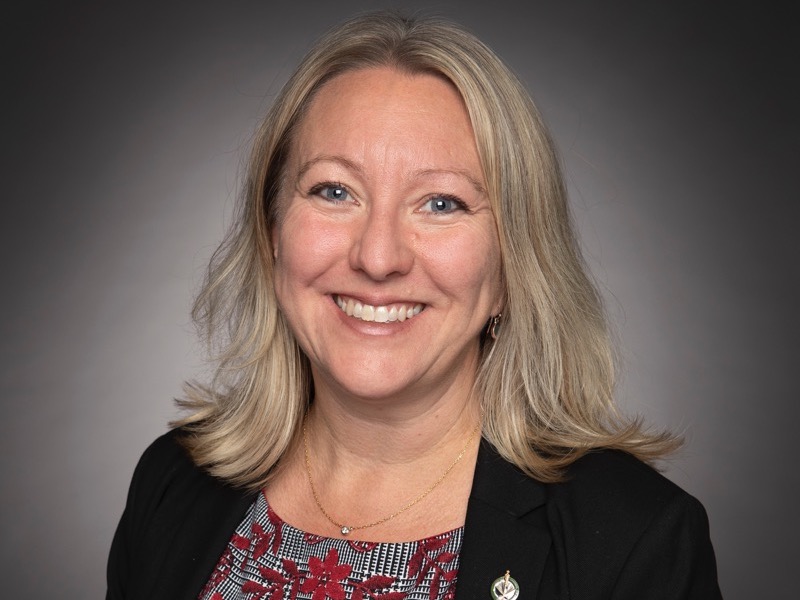
Could managing the international and domestic crises that have emerged over the past month factor into the upcoming federal budget?
Associate Finance Minister Mona Fortier, who is also the minister of middle-class prosperity, spoke to Investment Executive about how the government plans to keep the economy — and the middle class — growing amid signs of turmoil. Her answers have been edited for length and clarity.
IE: Will the federal budget address recent issues such as plummeting global markets, the spread of the coronavirus and continuing rail blockades?
Fortier: We know that we are dealing with the coronavirus and the blockades, and have to take that into consideration, but I can’t speculate on the economic reality at this time. The minister of finance and the whole team is looking closely at how we can best maneuver our economy at this time and make sure that we continue to be strong and push toward growth.
IE: Your party’s 2019 election platform committed to introducing a 10% luxury tax on cars, boats and personal aircraft that cost more than $100,000. Will that be included in the budget?
Fortier: We’ve been, since 2015 as a government, trying to improve the tax fairness for Canadian families and businesses. We wanted to close loopholes, eliminate measures that disproportionately favour the wealthy and also crack down on corporate tax evasion.
With our plan to continue to grow the economy, our government will be moving forward by making Canada’s tax system fairer for the middle-class and people working hard to join it. Like we did in 2015, we’re asking the wealthiest Canadians to pay a little bit more.
As we work toward our budget 2020 and after doing a thorough pre-budget consultation, we’re looking at how we can best accomplish these goals and also ensure that we continue to have the resources that we need to invest in people and keep our economy strong and growing. Different measures are going to be studied and we should be announcing some measures in budget 2020.
IE: The government-appointed Expert Panel on Sustainable Finance recommended, in its final report last June, a financial incentive for “climate-conscious” investments held in RRSPs. Is that something we could see in the budget?
Fortier: We are continuing to examine the recommendations that have been presented by the expert panel, and we are going to consider some of those initiatives that could support us in our next steps.
One thing that is important — and [Finance] Minister [Bill] Morneau did clearly say this at the [House of Commons] Finance Committee — is that our goal, as a government, is to make sure that we have economic growth that we are able to turn to a cleaner and greener economy. We have to be mindful to make sure that we’re supporting that transition.
IE: Housing prices are out of reach for a lot of millennials. Will your government introduce any incentives to make housing more affordable?
Fortier: Our goal is for every Canadian to have a safe, affordable and accessible place to call home. We’ve taken concrete action in the past four years to do this. We want to protect the investments Canadians have made in their homes and also keep the costs of homeownership reasonable. We’ve also made unprecedented investments through Canada’s first-ever National Housing Strategy totalling more than $55 billion over 10 years.
IE: Is the goal of the middle-class prosperity portfolio to help Canadians move into that demographic?
Fortier: We’ve been concentrating on growing and strengthening the middle class across the country by making sure that we put in measures that will enable Canadians to have an affordable place to call home and be able to put money aside for dignified and secured retirement; that they’ll be able to afford a good education for their kids and even have access to a good job.
Depending on where you live across the country and depending on how your family is structured, your means will be different. If you’re a family of two supporting three kids compared to a single parent supporting five kids, that will make a difference on how we can support families to make sure they have a chance to succeed.
Last week, the national poverty survey came out and over a million Canadians were lifted out of poverty. The measures we’ve put in over the last four years have helped Canadians in their day-to-day lives. But we know that they still feel the squeeze at the end of the month, and we’re trying to look at how we can move forward in supporting Canadians to continue to be an active contributor to our economy.
IE: Would that involve targeting assistance to specific groups, such as seniors or young people?
Fortier: We’re trying to focus on an economy that will work for everyone. We’re trying to reduce the inequalities that exist throughout the country. It can be through income or support. We’re trying to ensure that economic prosperity is shared as broadly as possible.
How do we improve people’s quality of life? How do we make their lives more affordable? And where are we going to invest to give them access to good jobs? We’re looking at what will make a difference at the end of the day while at the same continuing to grow the economy.
One measure we announced when we got back in government was to increase the basic personal amount from $12,298 to $15,000 by 2023. This will help over a million Canadians not pay taxes anymore. But it will also help 20 million Canadians have a little bit more money in their pocket. For a single person, by 2023, it would be around $300, and for a family of four, it would represent $600 more. This is in addition to other measures, such as the Canada Child Benefit.